Somalia
The government of Somalia, together with the United Nations on Sunday launched an appeal for $80 million to provide relief to people affected by recent flooding in the country’s central and southern regions.
Thousands of Somalis were displaced after the areas received the heaviest rainfall experienced in Somalia in more than three decades.
Somalia’s Federal Ministry of Humanitarian Affairs and Disaster Management has been working with the UN Office for the Coordination of Humanitarian Affairs (OCHA) and the African Union Mission in Somalia (AMISOM) tyo evacuate people from flooded areas.
According to OCHA, the moderate to heavy rains across Somalia and the Ethiopian highlands have resulted in increased river flooding, particularly along the Juba and Shabelle rivers, and localized flash flooding.
The flooding has led to fatalities, massive displacement, and damage to infrastructure and cropland, compounding an already fragile humanitarian situation.
It adds that more than 750,000 people are estimated to have been affected by the flooding and more than 229,000 are displaced.
Funds are needed to provide services in camps for internally displaced persons (IDPs), emergency services in schools and provision of transport to deliver humanitarian assistance.
With the existing $1.5 billion 2018 Humanitarian Response Plan for Somalia only 24 per cent funded, humanitarian partners are unable to support a robust flood response.
“Unlike in 2017, when funding came in very early in the year to support the famine prevention, less than $370 million has been recorded to date in 2018,” the UN Humanitarian Coordinator for Somalia, Peter de Clercq, said at the launch in Mogadishu of the appeal dubbed Somalia Flood Response Plan.
De Clercq also highlighted the need for longer term investment to build resilience to climatic shocks and break the current cycle of recurrent crises.
The heavy rains and flash floods come only months after a devastating drought left over six million people in need of humanitarian assistance last year.
According to the Flood Response Plan, more devastation is likely to take place, if the heavy rains which started in March continue.



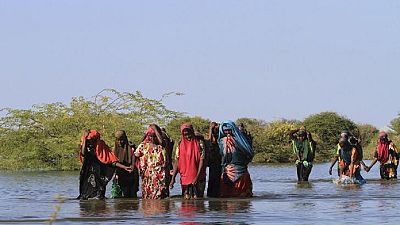



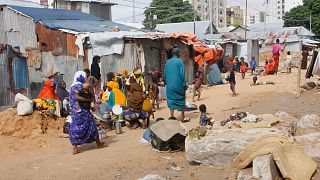

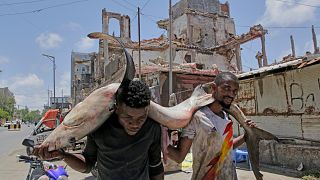
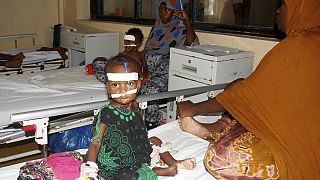
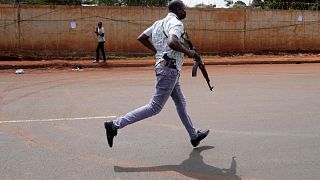
01:25
MSF: Access to healthcare in Sudan 'almost impossible' as attacks on healthcare facilities increase
01:55
US contractors say colleagues fired live ammunition at Palestinians seeking food
01:50
UN urges renewed political and climate action in Libya amid humanitarian and governance crises
01:15
Morocco says 2024 was the hottest year with temperatures reaching 47.7 degrees
02:35
Aid for hire: For-profit contractors deliver aid in war zones, alarming humanitarian groups
01:09
Wars displace over 122 million people as global aid dwindles – UNHCR